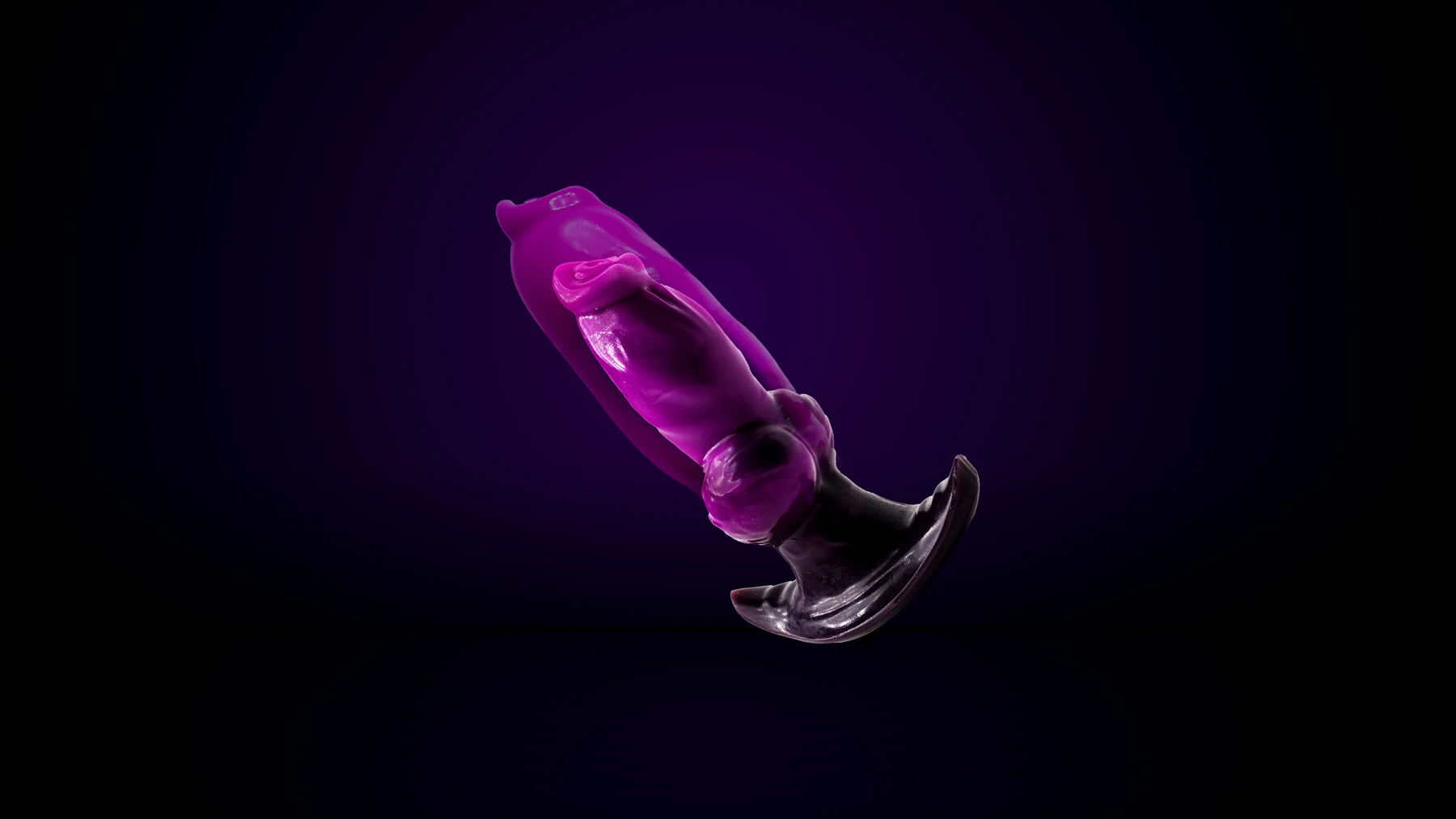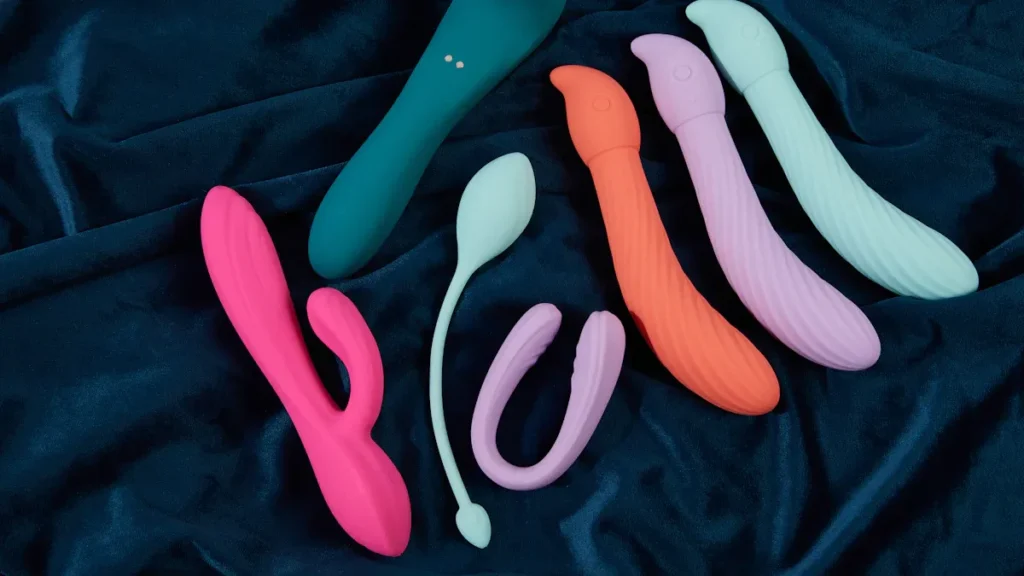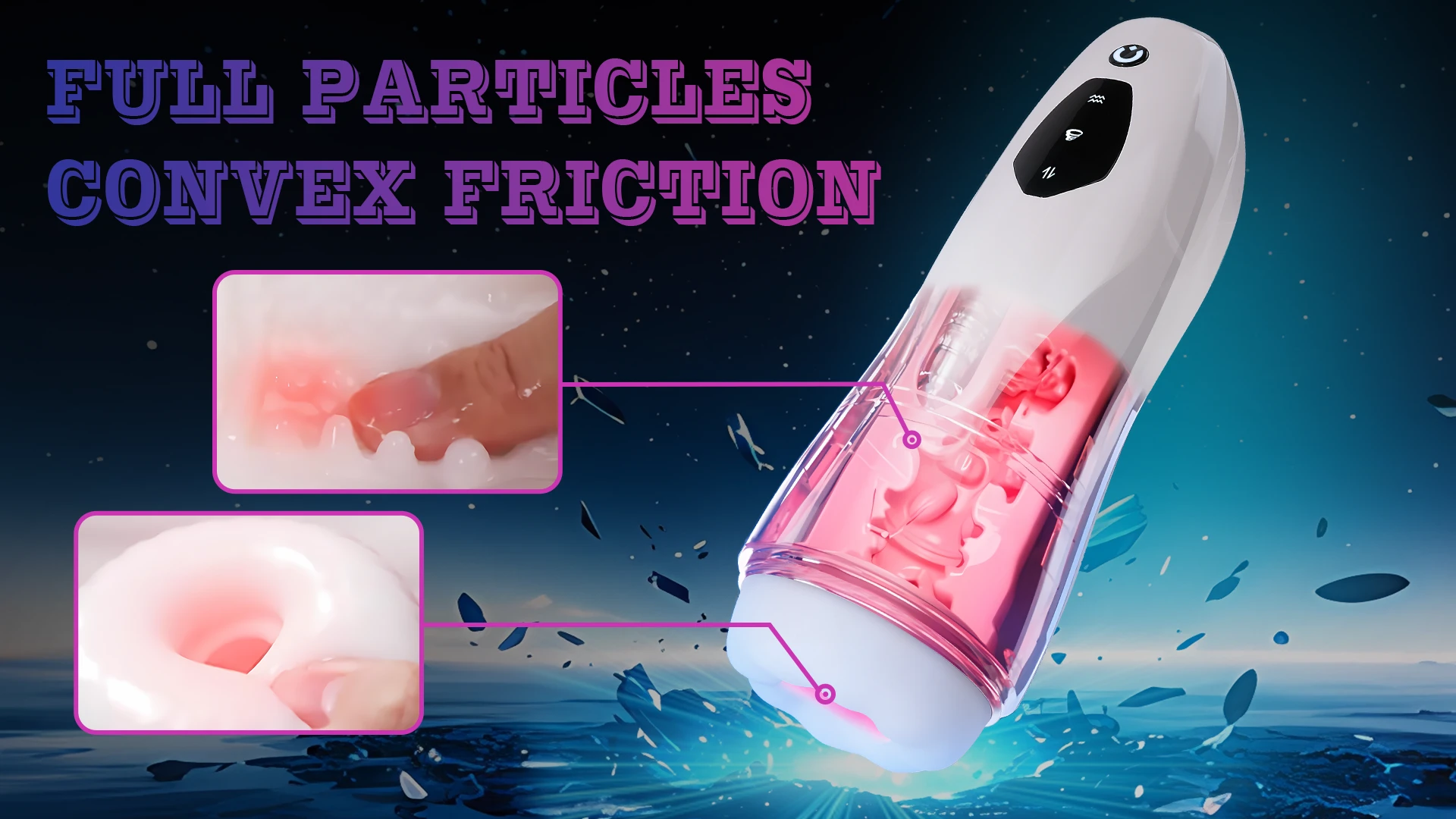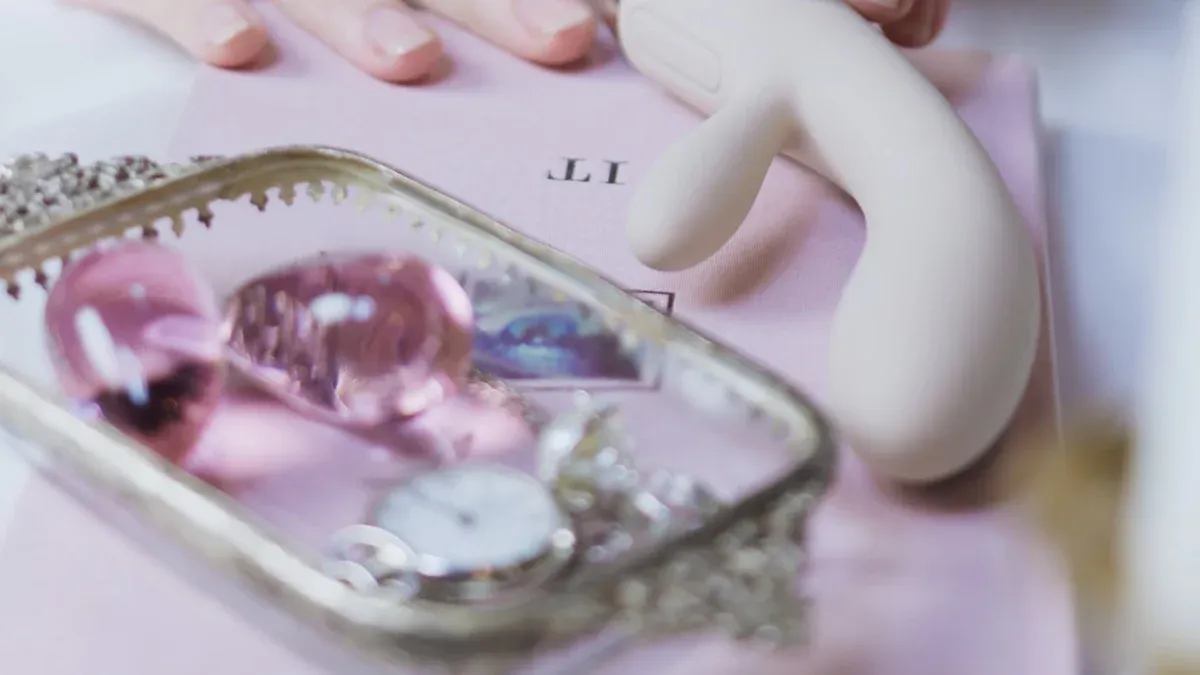Plastic Dildos Versus Silicone Dildos Which Material Should You Choose
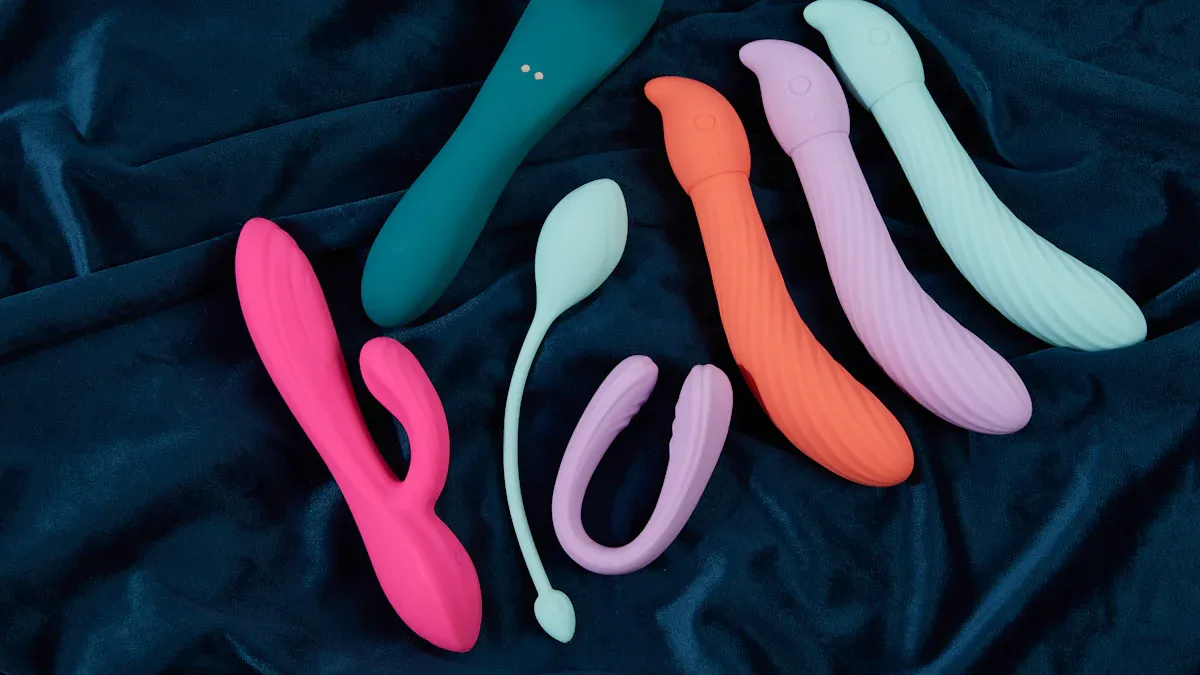
If you want a safe and comfy dildo, silicone is a great choice. Silicone feels soft and matches your body heat. It is safe for your body. Many people pick silicone because it does not have tiny holes and is simple to clean. You can even boil a silicone dildo or wash it in the dishwasher if it has no electronics. Plastic Dildos, like Squirting Strap on Dildos or a double dildo, can be harder and cost less money. But they are harder to clean and may not be as safe for your body. What you like is important. Some people enjoy the feel of a double sided dildo or want to save money. Think about what you like, if you have any skin problems, and what feels best for you. What people want changes what is sold, so pick a sex toy that works for you.
Comparison Table
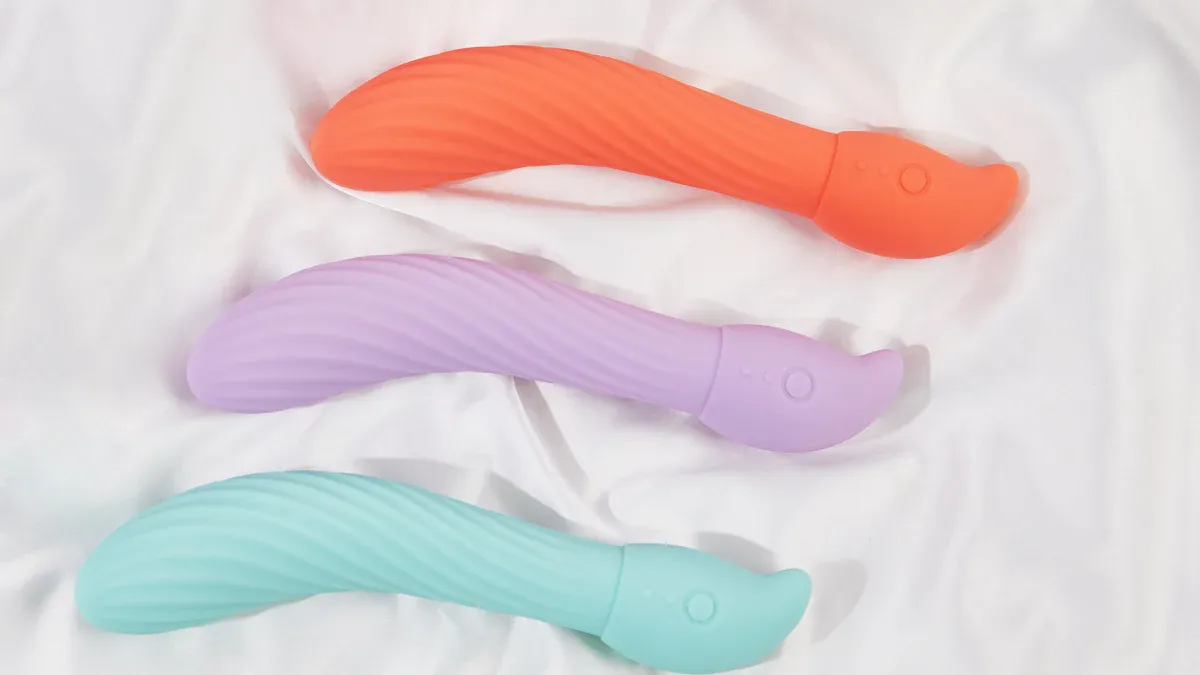
Plastic Dildos vs. Silicone Dildos
When you look for a new dildo, you may wonder which is better for you. Both plastic dildos and silicone dildos have special things about them. Here is a simple table to help you see the differences:
Attribute | Silicone Dildos | Plastic Dildos |
|---|---|---|
Market Popularity | Most popular in the sex toy market | Used often but less popular than silicone |
Material Properties | Body-safe, hypoallergenic, flexible, non-porous | Hard, rigid, sometimes porous |
Safety Concerns | Safe, easy to clean | May contain harmful chemicals like phthalates |
User Experience | Soft, adapts to body heat, comfortable | Firm, different sensation, less flexible |
Durability | Long-lasting, resists wear | Less durable, can break down over time |
Price | Usually costs more | More affordable |
Cleaning & Maintenance | Easy to clean, non-porous | Can be harder to clean, may hold bacteria |
Consumer Demand | Growing due to safety and comfort | Demand drops because of safety worries |
Tip: If you want a dildo that is simple to clean and safe for sensitive skin, silicone is a great choice. Many people pick silicone because it does not keep germs and feels soft. You can wash a silicone dildo with soap and water, or even boil it if there are no electronic parts. Plastic dildos cost less and feel harder, but you must clean them well. Some plastic dildos have chemicals that might bother your skin. Studies show that plastic sex toys can break into tiny pieces, which is not good for your health.
You may see that silicone dildos are very popular because people want body-safe toys. More people buy silicone as they learn about the risks of plastic dildos. If you care about safety, comfort, and easy cleaning, silicone is a smart choice. If you want to spend less money or like a firmer toy, plastic dildos could be right for you. Always think about what is most important to you when you choose a sex toy.
Plastic Dildos
Types
When you look at plastic dildos, you will find many different types. Each type uses a different material, and each one feels different in your hand. Here is a table to help you see the main types and how they compare:
Material | Firmness | Affordability | Common Usage / Notes |
|---|---|---|---|
ABS Plastic | Firm | Affordable | Used for sturdy, non-porous toys with smooth surfaces |
TPE/TPR | Soft, realistic | Affordable | Popular for realistic feel, less durable than silicone |
PVC | Soft | Cheap | Common, often contains phthalates, porous, less safe and durable |
Jelly Rubber | Soft | Cheap | Realistic skin-like texture, contains phthalates, porous, less safe |
Rubber (Latex) | Firm | Affordable | Firm, may cause allergies, porous, needs condom use and careful cleaning |
You might notice that some plastic dildos use TPE or TPR for a soft, realistic feel. Others use ABS plastic, which feels hard and smooth. PVC and jelly rubber dildos are cheap and soft, but they can have safety concerns. If you want a realistic skin-like texture, jelly rubber is common, but you need to be careful about safety.
Properties
Plastic dildos come with different properties. Some feel very firm, like ABS plastic. Others, like TPE or jelly, feel soft and bendy. Many people like the realistic sensation that soft materials give. However, most plastic dildos are porous. This means they have tiny holes that can trap germs and bacteria. Porous toys can also hold smells and may change color over time. Non-porous types, like ABS plastic, are easier to keep clean and last longer.
Here is a quick look at how these materials compare:
Material | Porosity | Firmness | Durability & Safety |
|---|---|---|---|
TPR/TPE | Porous | Soft and flexible | Can trap bacteria, degrades quickly, not body-safe |
PVC | Porous | Flexible | Strong smell, not durable, can contain harmful chemicals |
Jelly | Highly porous | Very flexible | Holds bacteria, fades in color, unsafe |
ABS Plastic | Non-porous | Hard | Durable, body-safe, needs lube for comfort |
If you want a dildo that feels realistic and soft, you might pick TPE or jelly. If you want something that lasts longer and is easier to clean, ABS plastic is a better choice.
Pros and Cons
Plastic dildos have some good points and some not-so-good points. Here is what you should know:
Pros:
You can find plastic dildos at a low price.
Many types offer a firm or realistic feel.
ABS plastic dildos are easy to find and come in many shapes.
Some plastic dildos have a smooth texture that feels nice.
Cons:
Many plastic dildos are porous and can trap germs.
Some types, like PVC and jelly, may have a strong odor.
Chemicals like phthalates in some dildos can cause irritation or health risks.
Plastic dildos can break down or change color over time.
Some products have misleading labels about being body-safe or phthalate-free.
Note: Scientists have found that some plastic dildos can release tiny plastic pieces and chemicals. These can cause health problems, especially if you use them often.
Safety
You should always think about safety when you pick a dildo. Many plastic dildos do not meet strict safety standards. Some contain phthalates, which can harm your health. Studies show that latex, PVC, and ABS plastic dildos can cause skin irritation or allergic reactions. Some people get rashes or feel itchy after using these toys. Microbes can also stay on porous dildos, even after cleaning. This means you could get an infection if you share your toy or do not clean it well.
Silicone dildos are much safer because they are non-porous and body-safe. If you want to lower your risk, look for dildos made from ABS plastic or medical-grade silicone. Always check the label and buy from brands that care about quality.
Cleaning
Cleaning plastic dildos can be tricky. Porous toys like TPE, PVC, and jelly rubber can trap germs deep inside. Even if you wash them with soap and water, bacteria can stay hidden. You cannot boil these toys or put them in the dishwasher because they might melt or break. The best way to clean them is with warm water and mild soap. You should let them dry completely before you store them.
If you want to keep your toy as clean as possible, use a condom over it each time. This helps stop germs from getting inside the toy. Replace your plastic dildo if you see cracks, rough spots, or if it starts to smell bad. Non-porous toys like ABS plastic are easier to clean, but you still need to wash them after every use.
Tip: Always follow the cleaning instructions that come with your dildo. If you want a toy that is easy to clean and lasts longer, you might want to try silicone instead.
Silicone Dildos
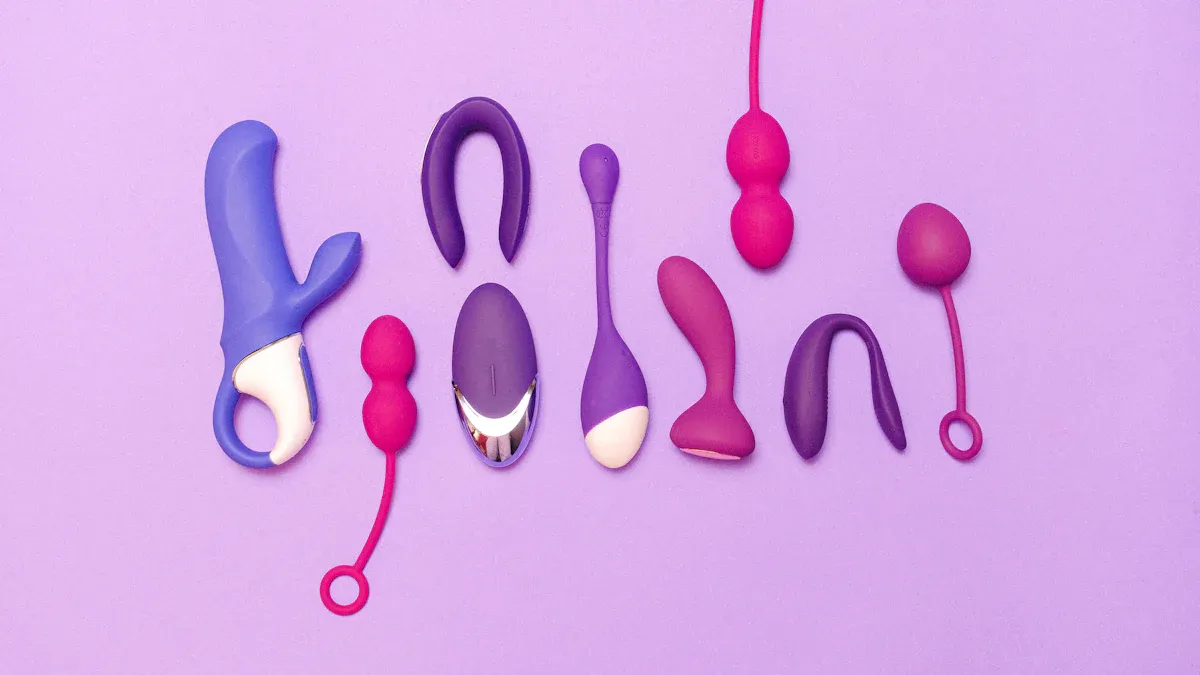
Types
When you look for silicone adult toys, you will find different types. The most common are platinum-cured silicone and medical-grade silicone. Both are popular because they are safe and work well inside the body. Platinum-cured silicone is called the “gold standard” for a body-safe silicone dildo. It does not have tiny holes, does not cause allergies, and leaves nothing harmful behind. Medical-grade silicone is also safe for people with allergies and works well with the body, but it can be lower quality if it is not platinum-cured.
Here is a table to help you compare the main types:
Feature | Platinum-Cured Silicone | Medical-Grade Silicone |
|---|---|---|
Texture | Smooth, uniform, low-drag | Can be tacky or soft |
Odor Resistance | Excellent | Varies by brand |
Color Stability | High; resists yellowing and fading | May fade over time |
Heat Resistance | Boil-safe up to 600°F | Some grades boil-safe |
Purity | No residue, platinum catalyst | May have residues if not platinum-cured |
Cost | Slightly higher | Varies widely |
You might also see food-grade silicone in some dildos, but it is not used as much for toys that go inside the body. Always check the label to make sure your toy is safe for your body.
Properties
Silicone adult toys have special features that make them stand out. Silicone does not have tiny holes, so germs and bacteria cannot get trapped. This makes it much safer than toys with holes. Silicone feels soft and bends easily, which makes it feel real. Many people like how silicone warms up fast and feels like skin.
Silicone is also good for people with allergies. If your skin is sensitive, you can use silicone dildos without worry. The feel can be smooth or a little sticky, depending on the brand. Good silicone keeps its color and shape, even after many uses. You can bend and squeeze silicone toys, and they go back to their shape.
If you want a toy that feels real and safe, silicone is a great pick. It is easy to clean and good for people who use toys often.
Pros and Cons of Silicone
You might want to know the good and bad things about silicone. Here is a quick look:
Pros | Cons |
|---|---|
Hypoallergenic and non-toxic | More expensive than other materials |
Durable and long-lasting | Not compatible with silicone-based lubricants |
Non-porous and easy to clean | May cause sensitivity in rare cases |
Soft, flexible, and realistic texture | Some brands may use blends of lower quality |
Silicone adult toys last a long time and do not break easily. They feel soft and bendy, which makes them comfy and fun. The main downside is the price. Silicone dildos usually cost more than plastic ones. You also need to use water-based lubes, because silicone lube can hurt the toy’s surface. Some people with very sensitive skin should test the toy on a small spot first.
Safety
You can trust silicone dildos to be safe. Doctors and health guides say that toys made from non-porous materials like silicone are the safest. Silicone does not let germs, viruses, or mold get inside. This lowers your chance of getting sick. Platinum-cured silicone meets the highest safety rules, like FDA and ISO standards. These rules show that the material is safe for your body and not toxic.
Silicone is also good for people with allergies, so it almost never causes skin problems. More people want toys that are safe and do not cause allergies, and silicone is the top choice. If you want a toy that keeps you healthy, pick a high-quality, body-safe silicone dildo.
Tip: Always buy from brands you trust that show their safety certificates. This helps you avoid toys that are not really safe for your body.
Cleaning
Cleaning silicone adult toys is easy and fast. You can wash your dildo with mild soap and warm water for at least 20 seconds. Make sure you clean all the small spaces and let it dry in the air. For a deep clean, you can boil 100% silicone toys for 3 to 5 minutes. This kills germs and keeps your toy safe for next time. You can also use a dishwasher if your toy has no electronic parts.
Do not use strong chemical cleaners, because they can leave bad stuff behind. Do not use UV lights, since they do not work well on silicone. If you want another way to clean, soak your toy in a weak bleach mix, then rinse it well. Always check your toy for damage. If you see tears, color changes, or a bad smell, it is time to get a new one.
Silicone does not have tiny holes, so you do not have to worry about germs hiding inside. This makes cleaning simple and keeps your toy safe every time you use it.
TPE vs. Silicone
Differences
When you look at tpe vs. silicone, you will notice some big differences. TPE stands for thermoplastic elastomer. Silicone is a special rubber that many people trust for sex toys. Both materials feel soft, but they act differently when you use them.
Here is a table to help you see how tpe vs. silicone compare:
Property | Silicone | TPE |
|---|---|---|
Safety | Non-toxic, hypoallergenic, body-safe | Usually safe, but less body-friendly |
Durability | Very strong, resists heat and chemicals | Good, but can break down faster |
Cleaning | Easy to clean, non-porous | Harder to clean, can be porous |
Feel | Soft, flexible, keeps shape | Softer, very squishy, can deform |
Recyclability | Not recyclable | Can be recycled |
You might like TPE because it feels extra soft and squishy. Many people say it feels more like real skin. TPE toys bend easily and feel gentle. Silicone toys feel smooth and flexible, but they snap back to their shape. You can boil silicone toys to clean them, but you cannot do this with TPE. TPE toys may not last as long as silicone toys.
Tip: If you want a toy that feels super soft, TPE might be your pick. If you want a toy that lasts longer and is easy to clean, silicone is a better choice.
Which Is Safer
When you think about tpe vs. silicone, safety matters most. Silicone wins in this area. Medical experts say silicone is non-toxic and does not cause allergies. You can use silicone toys even if you have sensitive skin. TPE is usually safe, but it can have tiny holes that trap germs. This makes TPE harder to clean. Some people with allergies may react to TPE.
If you want a toy that keeps you safe, silicone is the best choice. You can boil it or wash it in the dishwasher. TPE toys need more care. You should use a condom with TPE toys if you want extra safety. Many people choose silicone because it meets strict health standards.
When you compare tpe vs. silicone, think about what matters most to you. Do you want a soft feel, or do you want the safest option? For most people, silicone gives peace of mind and easy cleaning. TPE feels nice, but it may not be as safe for everyone.
Sex Toy Safety
Body-Safe Materials
When you choose a sex toy, you want it to be safe. Medical-grade silicone is the safest dildo material. It does not have tiny holes, does not cause allergies, and is simple to clean. You can also pick ABS plastic, stainless steel, or borosilicate glass. These are all safe for your body and last a long time. Some toys use wood or ceramic, but only if they have a safe, sealed coating.
Here is a table to help you see which materials are safe and what to watch out for:
Material Type | Safety Criteria and Properties | Health Risks and Research Findings |
|---|---|---|
Medical-Grade Silicone | Non-porous, non-toxic, easy to clean; most body-safe dildo material | Safe from trusted brands; cheap fillers can be risky |
ABS Plastic | Body-safe, non-porous, durable | Hard texture; no big chemical risks |
Stainless Steel/Metals | Durable, non-porous, body-safe if nickel-free | Nickel allergies possible with cheap metals |
Borosilicate Glass | Strong, non-porous, shatter-resistant | Only safe if not cracked or broken |
Sealed Wood/Ceramics | Non-toxic finish, non-porous when sealed | Unsafe if unsealed or cracked |
Jelly Rubber, PVC, TPE | Porous, can leach chemicals | Linked to hormone issues and infections |
You should always pick a sex toy made from a safe material. Toys without tiny holes are easier to clean and keep germs away. Stay away from toys with phthalates or BPA, because these can hurt your health.
Allergies and Sensitivities
Some people have allergies or sensitive skin. You might get red or itchy from latex or some metals. About 1-6% of people are allergic to latex, so do not use latex toys if you have this problem. Nickel in cheap metal toys can also bother your skin. Even rubber toys without latex can have chemicals that make your skin feel bad.
Here are some tips to help you stay safe:
Choose hypoallergenic materials like medical-grade silicone, glass, or ABS plastic for your sex toy.
Always rinse your toy well after cleaning to get rid of any soap left.
Try a patch test on your arm before using a new toy on private areas.
If you feel burning, itching, or see a rash, stop using the toy and talk to a doctor.
Use condoms on toys with tiny holes to lower your risk of skin problems or infection.
If you want the safest dildo material, pick medical-grade silicone. It does not cause allergies, has no tiny holes, and is easy to clean. Glass and ABS plastic are also good for people with sensitive skin. Always check for “phthalate-free” or “BPA-free” on the label to make sure your sex toy is really safe.
Choosing a Dildo
Budget
When you shop for a dildo, your budget matters. You can find a sex toy for almost any price. If you want to save money, plastic dildos often cost less. These work well if you want to try something new or need a backup. If you want the best dildo material, silicone dildos usually cost more, but they last longer and feel better. Sometimes, spending a little more means you get a higher quality toy that is safer and easier to clean. If you want to upgrade to a better-quality sex toy, look for trusted brands and check reviews. Remember, a good dildo is an investment in your comfort and health.
Sensation
How a dildo feels is just as important as the price. Everyone has different preferences. Some people like a firm toy, while others want something soft and flexible. Silicone dildos feel smooth and warm up to your body. Plastic dildos feel harder and may give a different sensation. Manufacturers use ergonomic testing and customer surveys to make sure toys are comfortable and easy to use. Real users share what feels good or not, so you can find a toy that matches your personal preference. If you want the best dildo material for sensation, silicone is a top pick for many people. Think about what makes you feel good and choose a toy that fits your needs.
Tip: Try holding the dildo in your hand before buying if you can. This helps you see if it feels right for you.
Maintenance
Keeping your sex toy clean is key for your health and the toy’s life. Experts say you should always wash your dildo after each use. Silicone dildos are easy to clean with soap and water. You can even boil them if they have no electronic parts. Plastic dildos need more care because some types can trap germs. Always follow the cleaning tips from the maker. If you want to upgrade to a better-quality sex toy, choose one that is easy to clean and store. Good maintenance keeps your toy safe and ready for next time.
Note: A quality dildo made from the best dildo material will last longer if you take care of it. Always store your toy in a clean, dry place.
Choosing between a plastic dildo and a silicone dildo depends on what matters most to you. Silicone dildos feel soft, clean up easily, and work well for sensitive skin. Plastic dildos cost less and give a firmer feel. Experts say there is no clear research showing which dildo is best, so you may need to try different types. Your perfect dildo matches your comfort, budget, and personal style.

